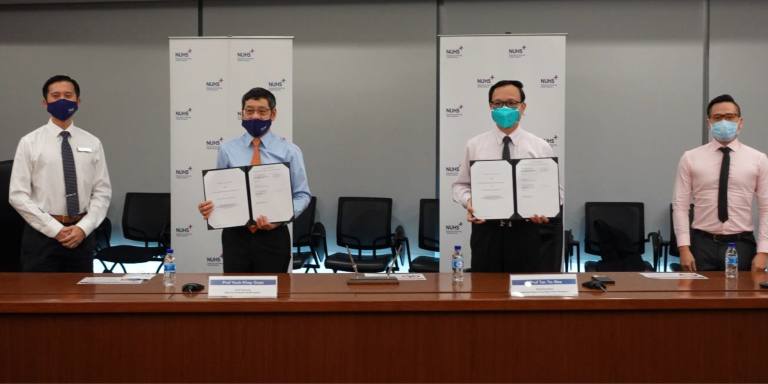
The National Supercomputing Centre Singapore (NSCC) and the National University Health System (NUHS) have signed a collaboration agreement to build a national petascale supercomputing infrastructure that will meet Singapore’s medical research and healthcare needs by the middle of next year. The five-year Research, Innovation and Enterprise 2020 (RIE2020) plan had allocated funds for research and development (R&D) in three high-impact areas, including health.
Hospitals generate large volumes of data every year, and modern technologies, such as AI, machine learning, and automation, are helping medical researchers make sense of these huge amounts of data to improve patient outcomes. The development of such tools can be exponentially improved with the help of supercomputers that allow medical researchers to create more complex AI models that can accommodate large amounts of data.
A petaflop supercomputer refers to computer systems capable of performing at least 1 quadrillion floating point operations per second (FLOPS), which is the measure of the number of calculations that can be performed in one second.
This computing infrastructure, dubbed “Prescience,” is used to train AI models that predict patient health trajectories and indicate that a patient’s condition may deteriorate. Dr. Ngiam Kee Yuan, director of technology at NUHS, said:
“The health system sees a large number of patients per day and generates large amounts of data that can be used to train AI models that improve the quality of care.”
“Normally, this can take days to process, but the new supercomputer could help reduce our training times to hours allowing our physicians and paramedics to optimize patient trajectories and improve the quality of patient care”
“The high-speed connectivity of 5G will address current latency and bandwidth limitations, and open up opportunities for better healthcare experiences, such as smoother teleconsultations, augmented surgery using mixed reality devices, and robotic AI capabilities using cloud and edge computing”
“These conversational chatbots have many use cases – for example, advising patients on chronic disease care”
Translated from Les Hôpitaux de Singapour vont se doter d’un superordinateur pour booster l’IA









